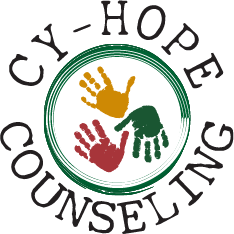Surviving Grief
Written by: Angie McDonald, LPC-Intern
Grief is an extremely difficult and painful process that is different for everyone. There is no timeline, and no one can tell you how to get through it. You may grieve for many reasons...loss of a loved one, loss of a relationship, loss of a job/career, children leaving home, empty nest adjustments, retirement adjustments, and the list can go on. So, the question is, how do you get through the grief process?
There are different theories on grief, including anywhere between 5-7 stages. The Kubler-Ross model is a common model discussed including stages of denial, anger, bargaining, depression, and acceptance. Some models include the final stage which is hope. Kubler Ross’s model was originally written as she observed terminally ill patients and the stages they went through. What we do know is grief is a shock to the body, mind, and soul and you will experience a roller coaster of emotions. When a person is grieving, they may experience many different painful emotions within one hour. Shock and denial may be the first emotional response, not wanting to accept what is happening. There is exhaustion from “feeling” so much in one day and can lead to depression. Worrying about what comes next increases anxiety. Trying to understand why you have to experience this can lead to confusion, anger, and frustration.
So, how to do you survive when the rug is pulled out from underneath you when the world as you know it is changed forever (without your approval), or when the foundation underneath you is no longer secure but unsteady and scary? It will be different for everyone and there is no prescription. I have included a few things that may help as you progress through the stages.
Accept help from loved ones, even when you don’t feel like it
Breathe deeply, often, to help reduce the anxiety
Journal your thoughts (your notes in your phone works great when on the go)
Find a good counselor or support group
Get outside and breathe in the fresh air
Exercise 3 times a week - 20 min., 3 times a week reduces symptoms of depression and anxiety
Be kind to yourself, allow yourself to “feel” the loss
As you enter the acceptance stage, you will begin to regain some balance
Eventually, hope will begin to rise again. It does not mean it didn’t happen, it does not mean you are forgetting the person or the experience, but you are healing from the inside out and allowing yourself to move forward. There will be a new normal that will begin to “feel” ok. Grief is a journey that no one wants, grief changes you, and grief challenges you. However, on the other side of grief is hope that births out of pain, beauty that comes from the ashes, and light that comes from the darkness.
